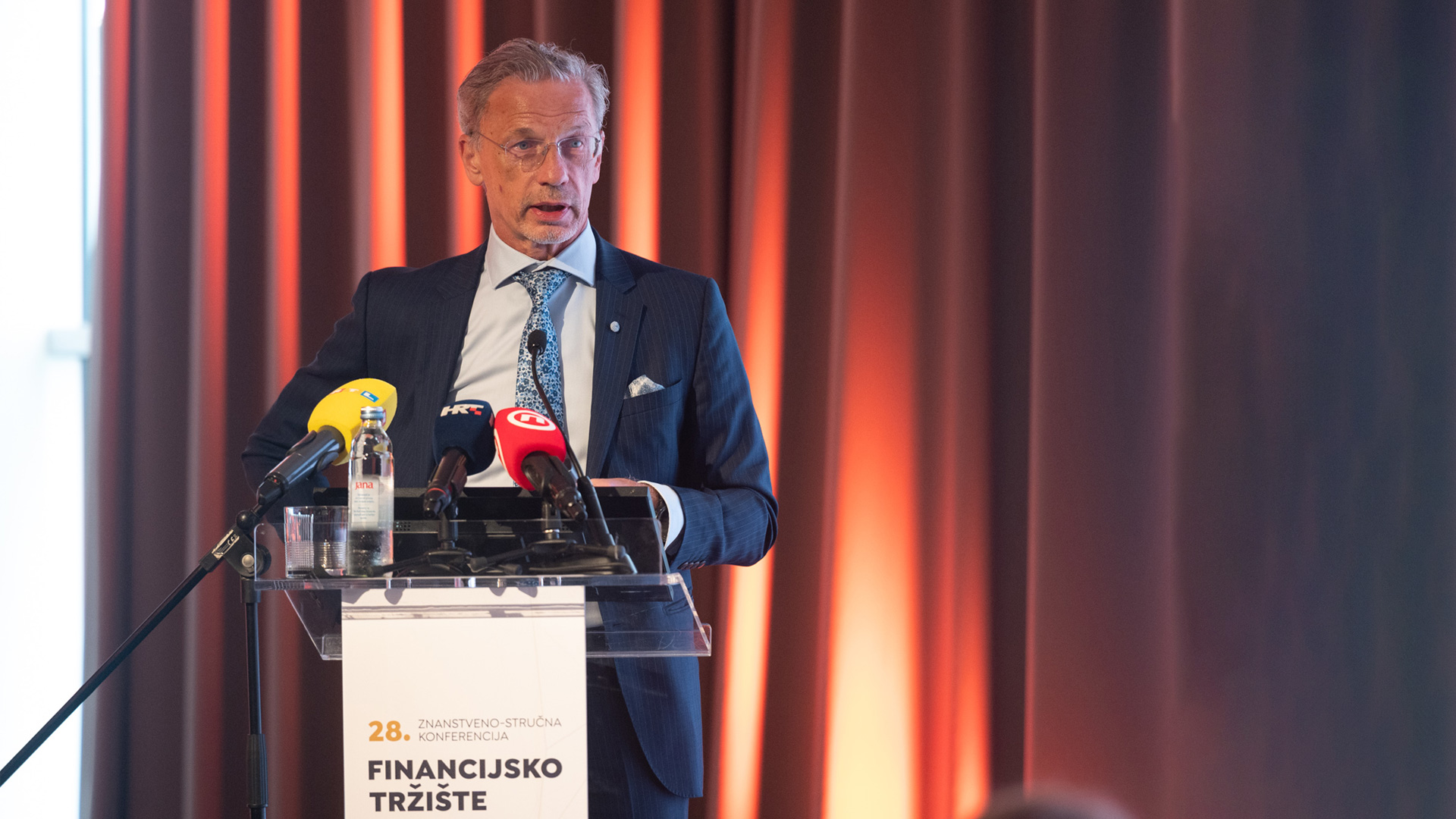
Source: HUB (Croatian Banking Association)
"Future economic developments will be increasingly influenced by structural trends related to deglobalisation and fragmentation of the world trade, defence spending, demographic changes and aging of the population, accelerated digital transformation, and decarbonisation, i.e. emission reduction and transition to clean energy," said Boris Vujčić, Governor of the Croatian National Bank, today in his introductory lecture entitled "In Uncharted Waters: Macroeconomic Outlook in the Context of a Trade War" at the 28th scientific-professional conference “Financial Market”, which was held in Opatija on 22 and 23 May.
"This year, economic activity in the euro area is expected to continue to grow, but at a slower pace than in the pre-pandemic period. Economic growth in the euro area was higher than projected at the beginning of the year, but data indicate a slowdown in activity in the second quarter. The escalation of the trade war in April significantly increases uncertainty about economic growth and inflation projections, but if progress is made in negotiations between the EU and other countries with the US compared to the current situation, this could result in lower effective tariffs, and the effects on global growth and inflation could be milder," the Governor of the CNB emphasised on that occasion. According to him, the euro area's direct exposure to the US is limited in this context, but the negative effects of potential tariffs could be noticeable in some sectors, such as pharmaceuticals, scientific instruments, and the ammunition and electrical appliance industry.
"The good news is that we can still expect the relatively strong growth of the Croatian economy to continue. When it comes to inflation in Croatia, data shows that after accelerating in late 2024 and early 2025, inflation continued to slow down, and a similar trend is expected throughout the next two years. However, it should be noted that global expectations of inflation trends are largely influenced by the decrease in energy prices due to weakening global demand and increasing supply. Inflationary pressures could also be mitigated by a greater supply of cheap products from China, and increased by rising business costs and possible countermeasures by the EU. Therefore, we are still in uncertain and uncharted waters, because there has not been a trade war and such uncertainties since the 1920s. In this context, geopolitical changes are also encouraging greater defence spending, which could boost economic growth, but, in certain scenarios, also contribute to inflationary pressures to some extent," concluded the Governor of the CNB.
